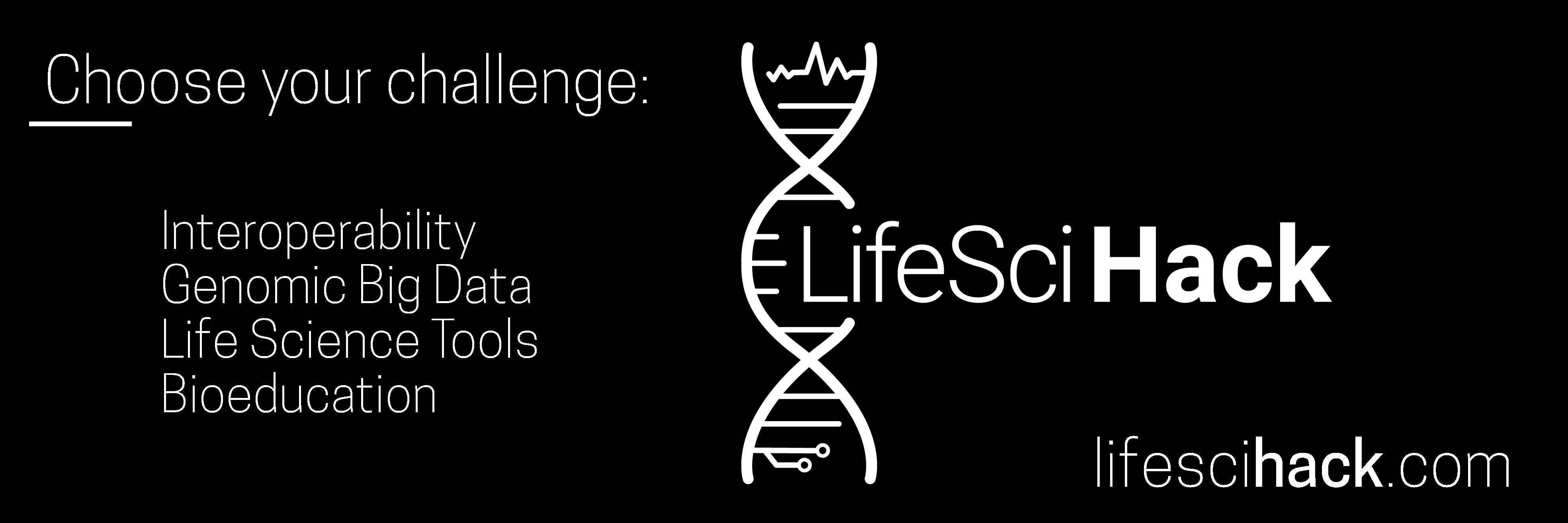 Welcome to the submission repository for the LifeSciHack 2019!
Welcome to the submission repository for the LifeSciHack 2019!
To meet potential team members, chat about projects, or get help with your code for LifeSciHack2019, head over join the slack workspace lifescihack2019.slack.com
Participating in the hackathon is as easy as contributing to an open source project on GitHub. Exactly so, because you will register your project by creating an issue in this repository, and submit it by creating a pull request.
Here’s how it works:
Your first step is to create an issue in the LifeSciHack2019 repository. This issue acts as a "soft" registration for the hackathon, and can help you to coordinate your ideas with other participants. An issue is a good place to talk openly about your project ideas with others before you decide on its exact scope.
You can find the issue tab at the top of this repo.
Here you can view all project submission ideas:
Create the Issue:
Submit the Proposal
Use your issue to talk with collaborators, brainstorm, and organize. Check out the other issues to see if there are participants who want to work on the same things.
Members of the lifescihack team will be able to point other participants to your issue (if it looks like they can help), help you with technical questions, or just offer support :)
Issue events will also be pulled into the Slack feed Slack which is a better place for more general discussion and chatting in the #active-projects channel!
Work on your project as you like. How you work is up to you; We recommend creating a new GitHub repo for your team. Remember to only begin working on your project after the hackathon begins on February 1st!
Use the issue you created in step 1 to let others know where your project lives. You might want discuss any technical challenges or attract additional teammembers.
Wherever you work, remember that your project should include an Open Source License of some form, and should be accessible to everyone after the submission deadline.
When you feel ready to submit, create a new fork of the LifeSciHack repo, and add your project as a markdown file inside LifeSciHack2019/submissions/.
You can find the fork button at the top right of this repo.
Click the Fork Button and fork it to your github account (make sure to have a github account!):
Lets Create the new file for your project submission.
You can use submissions/EXAMPLE.md as a template if you like for what your project would look like.
When you are ready to submit your file you will open up a new pull request:
Here you can view the changes you've made to the file and how you will be submitting your project
When you are ready to submit a proposal open up a pull request and submit your project before noon!
Upon submission you should see this final submission page.
It is also logged through slack!
Be sure that your project's folder links to the repo you've been working in, and contains any other supporting materials that you want evaluated by judges (such as links to a pitch deck or demo video).
Once ready, submit via a new pull request.
Opening a Pull Request establishes your project as an "official" submission
You can open a PR before the submission deadline and continue to work, but all materials must be finalized before the end of the hackathon. Any commits to your project submission after the deadline will not be considered.
We'd also recommend referencing the issue you created in step 1 using keywords in your PR.
Submit your pull request before the submission deadline: February 3, 12:00 CST
Whether or not you get a prize, you deserve to be proud of your work. Thanks for participating in the hackathon!
Submissions will be graded across the following equally-weighted criteria:
- Functionality
- Creativity
- Difficulty
- Design
- Impact on category
Info about our super-awesome judges panel can be found on the hackathon website.











